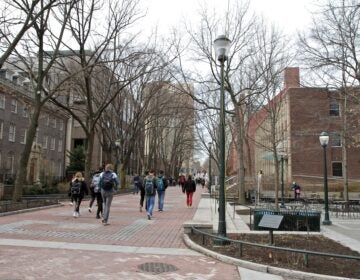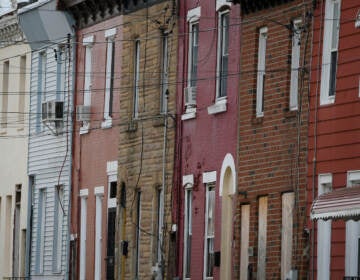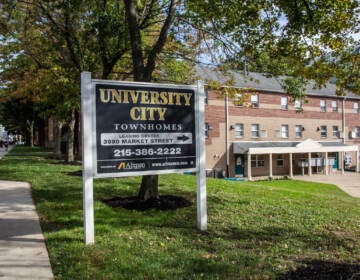‘Should I have even gone to college?’: Why Philly borrowers want Biden to cancel student debt
More than 50 community organizers and student borrowers rallied in front of President-elect Biden’s Center City headquarters to demand he cancel all federal student loan debt.
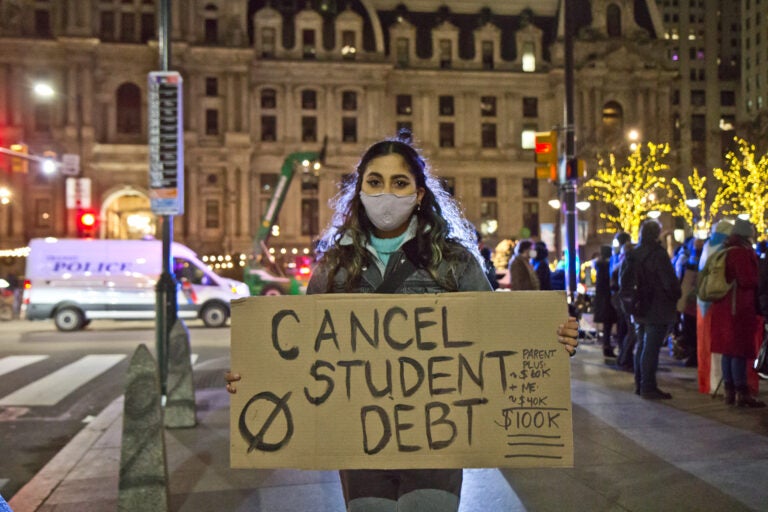
Illkya Acosta, 26, protested outside then President-elect Biden’s Philadelphia headquarters demanding debt cancellation on Jan. 4. (Kimberly Paynter/WHYY)
More than 50 community organizers and student borrowers rallied in front of President-elect Joe Biden’s Center City headquarters Monday evening to demand he cancel all federal student loan debt.
The event was hosted by the Pennsylvania chapter of the Debt Collective, a national movement pushing Biden to cancel all student debt by executive order on his first day in office.
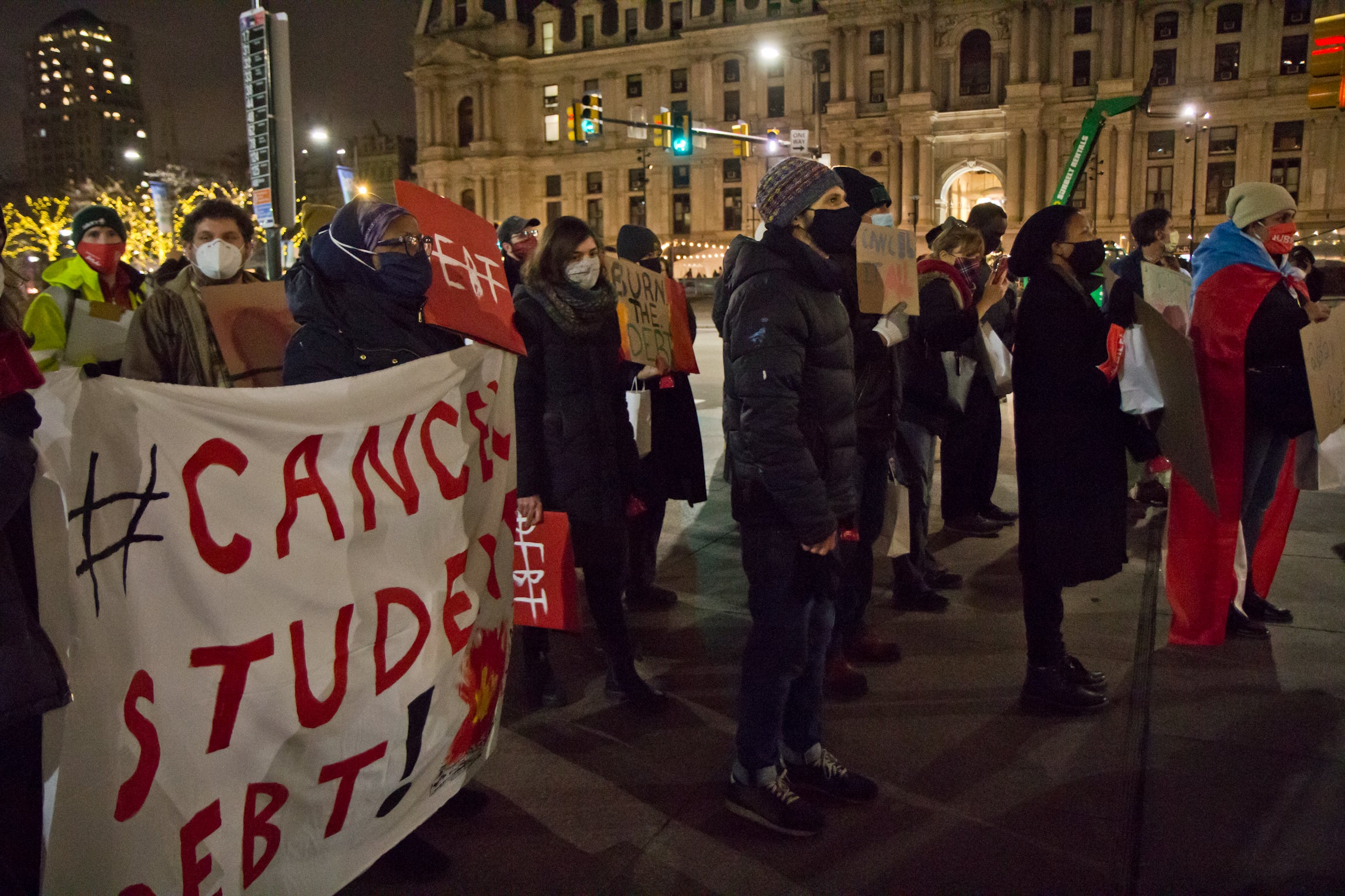
“Student debt is a plague really that’s hampering and burdening the lives of 45 million people across the country, especially in communities of color,’ said Debt Collective organizer Chris Casuccio.
Casuccio and other local organizers say cancelling student debt would be especially helpful to a city like Philadelphia where residents have higher debt loads than the rest of the country.
Last year, a Federal Reserve Bank of Philadelphia report looked at December 2018 student loan debt in the City of Brotherly Love. It found more than a quarter of Philadelphians held student loan debt, compared to 17% of adults in the U.S., and owed $11.6 billion in all.
Illkya Acosta and her father share $100,000 of that debt – he applied for a $60,000 Parent PLUS Loan – which she wrote out on a cardboard sign. Acosta is a 26 year old, first generation American, who went to school to study graphic design.
“I wanted to go to college so I could get a career and make money, take care of myself, help out my family… that’s not where I’m getting yet,” said Acosta who is working in hospitality and doing office work.” I’m like should I have even gone to college?”
Acosta and millions of Americans with federal loans did receive some relief through the CARES Act – it paused loan payments and interest – but the forbearance period is slated to end Jan. 31.
“The two jobs that I have… I’m barely making rent here in the city,” said Acosta, who doesn’t know what job prospects will be as the pandemic continues to affect the way people work. “I’m just scraping by.”
Some students had hoped that Congress would pass some additional relief in this latest coronavirus relief package, but a proposal to wipe out $10,000 of student debt was ultimately dropped.
Progressive lawmakers like Sen. Elizabeth Warren and Rep. Alexandria Ocasio Cortez have come out in support of canceling up to $50,000 of student loan debt, but Biden has only gone so far as calling on Congress to cancel $10,000 for borrowers.
Robert Walker, 26, said even seeing $50,000 of his $90,000 debt load cut would be enough to change his life. Walker said he is luckier than many of his peers. He went to school for mechanical engineering and is currently employed in that field. But his debt, said Walker, feels like a “mountain that you could never really chip away,” holding him back from starting the rest of his life.
“Until I get away from all this debt that I’m sitting on, you know the idea of any type of home ownership, building a family, any type of those things that should just be normal lifestyle means of happiness is just something that I can’t even consider,” he said.
Walker and other protest attendees argued that eliminating student debt would help 45 million American borrowers, but it would especially help communities of color and other marginalized groups who often navigate the loan process with little support.
That Federal Reserve report found that zip codes with the highest percentages of Black and Hispanic residents had the highest rates of loan delinquency.
Acosta and her father, for example, signed up for $100,000 worth of debt with Acosta translating the legal documents herself.
For people like Casuccio, canceling debt is a social justice issue as well as an economic one.
“It would provide a major stimulus during the pandemic and the protest is really to call attention to the fact that he can do it and that we’re going to be harassing him around the country until he does,” he said.
 WHYY is one of over 20 news organizations producing Broke in Philly, a collaborative reporting project on solutions to poverty and the city’s push towards economic justice. Follow us at @BrokeInPhilly.
WHYY is one of over 20 news organizations producing Broke in Philly, a collaborative reporting project on solutions to poverty and the city’s push towards economic justice. Follow us at @BrokeInPhilly.
WHYY is your source for fact-based, in-depth journalism and information. As a nonprofit organization, we rely on financial support from readers like you. Please give today.


